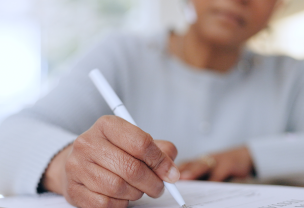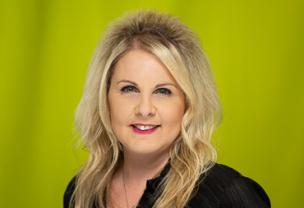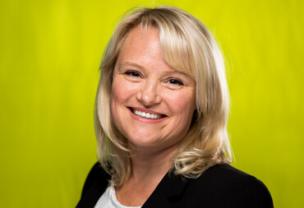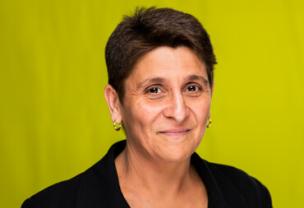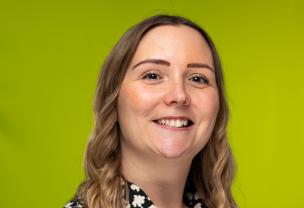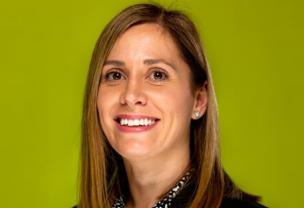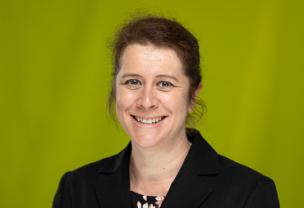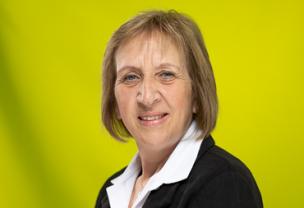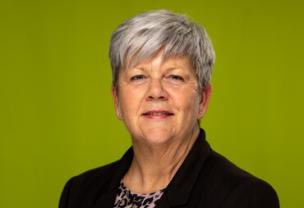When a loved one passes away it is incredibly difficult; the process is emotionally draining and is not helped by the practical concerns that arise following someone’s death. Our probate solicitors can help lighten that load and make the process easier.
At Birkett Long, our team understand the difficulties that can arise when dealing with someone’s estate. They are able to provide personal and clear advice as to the relevant probate process, the forms to complete, the tax to pay and any other steps that need to be carried out to ensure that your loved one’s estate is dealt with properly
We also offer home visits to the elderly, infirm and disabled and can provide large print leaflets on request.

Contact Claire Read
If a loved one has passed away and you are looking for advice as to what your next steps should be, please do not hesitate to contact me
Please find our answers to the probate frequently asked questions
What is probate?
When someone passes away, they leave behind everything they owned at the time of their death such as money, property and sentimental items. These are called assets; these assets need to be dealt with in respect of the deceased person’s last wishes set out in their will. This is referred to as the administration of an estate.
When a person dies with or without a will, the deceased’s estate must go through probate (also known as a “grant of representation”). Probate refers to the process where the deceased’s assets are valued, debts are settled and the remainder is distributed to family. Our probate solicitors can help you and your family from start to finish and answer all the questions you may have.
Probate in England and Wales is a legal process that first requires the will to be proven as a genuine and valid piece of documentation by the Probate Registry Office. This provides permission to the executors and trustees to commence with their duties.
Probate also involves the administration of the deceased’s estate. Executors and trustees are the appointed person/s who has the responsibility of administrating the estate in accordance with legal requirements. However, the appointed executors are not required to act if they are unwilling.
If you were appointed the executor of an estate in the deceased’s will, our probate solicitors can help you in administering the estate efficiently and accurately according to your loved one’s wishes. We can manage the distribution of assets to beneficiaries, the selling of assets and any other aspects defined in the will.
Dealing with probate?
At a time of grieving, the last thing you need is the task of administering the estate of the deceased. Fortunately, you don’t have to. Birkett Long is here to help with the often complex issues surrounding the administering of an estate, avoiding issues with things such as:
- Anything to do with tax – it’s complicated
- Probate causing family conflicts
- The multiple forms to complete
- Dealing with HMRC
- Understanding the financial penalties if something goes wrong
- The responsibility and consequence of mistakes made
What if the person I am acting for died without a will?
In many cases, you must prove that you can act for the person who has died and to do this you will need to apply for something known as a Grant of Letters of Administration. Banks and other institutions will need to see this document. This will also be needed before contracts can be exchanged in relation to a property sale.
Why do I need a solicitor to help with probate?
Probate can be lengthy and time-consuming. A good lawyer will not only do the practical things, such as prepare the papers required for Probate and make an application to the court on your behalf, but will also explain the process clearly and guide you through the many pitfalls. We can assist with paying Inheritance Tax and explaining the deadlines involved. We can advise if:
- The estate is valuable and inheritance tax is likely to be payable
- The estate is complicated - for example, with business or overseas assets
- You have underage children or family trusts
- There are questions over the validity of the will
- You have reason to believe that the will could be contested
- Practical issues (such as your location or other commitments) make it difficult for you to take a hands-on role as an executor.
How long does it take?
This varies depending on the type of estate. Grant of Letters of Administration can usually be obtained within six months of death – sooner if the estate is small or very straightforward. Most administrations can be completed within 12-18 months.
How do I value the estate?
You will need to write to all of the institutions where the deceased had holdings or owed money and they will provide you with the information. You will need to arrange valuations of the deceased’s property, and also their personal possessions.
Do I need to worry about gifts?
YES! The Inland Revenue needs details of all gifts made by the deceased within the last seven years of their life, particularly if they exceed £3,000 per tax year. They may need details of earlier gifts if the deceased paid any money into a trust during their lifetime. Even though a gift has been made, the value may still have to be treated as part of the deceased person’s estate. It is your responsibility as personal representative to ensure you have properly investigated any gifts made, and to whom, as the Revenue may make further investigations of their own.
What sort of paperwork does the Inland Revenue need?
You will have to complete a form which gives details of the deceased’s estate. You are signing this form to say that all the information you have given is true to the best of your knowledge, and that you have made proper enquiries to establish the information. If you deliberately withhold information, or give incorrect information because you have not made proper enquires, then you may be subject to penalties or prosecution personally.
Will I have to pay inheritance tax?
Although you will not have to pay the tax from your own pocket, as personal representative you are responsible for ensuring this is paid from the estate. The first payment is due six months after death occurs, and you will need to ensure sufficient funds are available. The Inland Revenue charges interest on any sums which remain unpaid.
How do I know who the creditors are?
Most people will make you aware if they are owed money from an estate. Funeral and testamentary expenses (such as inheritance tax) take priority, with secured debts (i.e. a mortgage) and unsecured debts (i.e. credit cards) following.
If you distribute the estate without paying off all the creditors, as personal representative you will be personally responsible for paying any outstanding sums, and then claiming monies back from the beneficiaries – tricky if they have already spent their inheritance. There is no timescale – if a creditor were to surface 3 years or 30 years in the future, you would still retain initial liability.
However, you can pass this responsibility to
the beneficiaries by placing a simple advertisement in the London Gazette, and the deceased’s local paper. Once the advertisement has expired (usually two months from when it is placed) you as personal representative you have no more responsibility.
I’ve heard of people contesting wills – do I need to worry about that?
Usually you will know very quickly if someone intends to contest a will. There are several claims which can be made, some of which must be made within 10 months of the Grant of Representation being obtained. It is advisable to check the position carefully before you distribute the estate. If a distribution is made, and a claim is subsequently made, you may be responsible for meeting the costs of that claim initially and then claiming monies back from the beneficiaries – if they still have them!
What does someone’s estate include?
Someone’s estate includes all property that a person owns. An estate can be divided into three categories, the gross estate, residue estate and estate debts, details of which are as follows:
- Gross estate - a gross estate is made up of the larger items that you own, such as any property, investments, stocks and shares, bank accounts, pensions and life insurance policies.
- Residue estate - a residue estate includes all personal property including cars, jewellery, furniture, paintings and any other items in your home.
- Estate debts - estate debts include any monies owed at your date of death. This can consist of any unpaid utility bills, credit card debts, mortgages on properties, student loans and any unpaid invoices.
As an executor or administrator of someone’s estate, you may want to meet with a probate lawyer to talk you through the probate process and you may decide you want help to administer the estate.
Meeting with a probate lawyer for the first time
Before you meet with a probate lawyer, there are several things you should find out about the estate, in order to get the most out of the meeting. You should also gather all relevant documents regarding the estate.
What to do before an initial meeting with a probate lawyer
Before meeting with a probate lawyer, you need to do the following:
- Register the deceased’s death at a register office
- Establish whether the deceased had a will and if so, try and find a copy of it
- If you have access to the deceased’s will, cross reference the beneficiaries’ addresses and ensure they are still up-to-date
- Gather details regarding the deceased’s assets and liabilities (as per the information below)
What to bring to an initial meeting with a probate lawyer
When you meet with a probate lawyer, make sure you have the following items with you:
- Deceased’s original death certificate
- Deceased’s original will or a copy. If the deceased died without leaving a will, provide a family tree of the deceased’s family
- Copies of recent financial statements for the deceased, for example, bank accounts, investment portfolios etc
- Copies of any life assurance policies
- Copies of deeds or the title to any property the deceased owned, together with an estimate of the value of property
- Details of any state or private pensions
- Documents regarding trusts
- Details of any further personal property and the values of them, for example, cars, art, antiques, valuable jewellery
- Income Tax Returns if the deceased was filing them
- An estimate of the deceased’s household goods
- Copies of any utility bills that are owed, including water, gas, credit cards etc
- A note of the deceased’s national insurance number
What to expect from an initial meeting with a probate lawyer
The probate lawyer will go through each clause of the deceased’s will with you, so that you know what the will outlines. If the deceased did not leave a will, the probate lawyer will discuss the deceased’s family background to determine who the beneficiaries of the estate will be.
The probate lawyer will ask several questions to establish the size of the deceased’s estate. Although you do not need to provide exact figures at this stage, it is important to establish a rough size of the estate, so that the probate lawyer can determine whether there may be Inheritance Tax payable. They can try and work out which Tax forms will need to be filled in, as every estate is different.
They will also advise whether they think an application for a Grant of Probate will be needed and will talk you through this process.
Whilst you will be asked various questions regarding the estate, you also have the opportunity to raise any queries you have regarding the probate process. You may find it easier to write down any questions you wish to raise prior to the meeting so that you do not forget them.
What happens after a meeting with a probate lawyer?
If you choose to instruct a probate lawyer to help you administer the estate, they will write to you setting out what has been agreed and what their fees will be to assist. They will then help you progress the administration of the estate.
With one of the largest teams in Essex, the team holds members of STEP (the Society of Trust and Estate Practitioners), members of Solicitors for the Elderly and the Agricultural Law Association.
We also offer home visits to the elderly, infirm and disabled.



